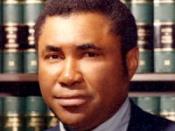The EEOC'S Charge Processing Procedures
In the following paragraphs, I will attempt to outline and briefly describe the Equal Employment Opportunity Commission (EEOC) charge process and the civil litigation process from the state level through the Supreme Court of the United States.
I. Who Can File a Charge of Discrimination?
*Any individual who believes that his or her employment rights have been violated may file a charge of discrimination with the EEOC (EEOC).
*In addition, an individual, organization, or agency may file a charge on behalf of another person in order to protect the aggrieved person's identity (EEOC).
II. How Is a Charge of Discrimination Filed?
*A charge may be filed by mail or in person at the nearest EEOC office. Individuals may consult their local telephone directory (U.S. Government listing) or call 1-800-669-4000 (voice) or 1-800-669-6820 (TTY) to contact the nearest EEOC office for more information on specific procedures for filing a charge (EEOC).
*Individuals who need an accommodation in order to file a charge (e.g., sign language interpreter, print materials in an accessible format) should inform the EEOC field office so appropriate arrangements can be made (EEOC).
III. What Information Must Be Provided to File a Charge?
*The complaining party's name, address, and telephone number.
*The name, address, and telephone number of the respondent employer, employment agency, or union that is alleged to have discriminated, and number of employees (or union members), if known.
*A short description of the alleged violation (the event that caused the complaining party to believe that his or her rights were violated).
*The date(s) of the alleged violation(s) (EEOC).
IV. What Are the Time Limits for Filing a Charge of Discrimination?
All laws enforced by EEOC, except the Equal Pay Act, require filing a charge with EEOC before a private lawsuit may...



Juman
a productive essay on the EEOC which goes in a smooth way.
0 out of 0 people found this comment useful.